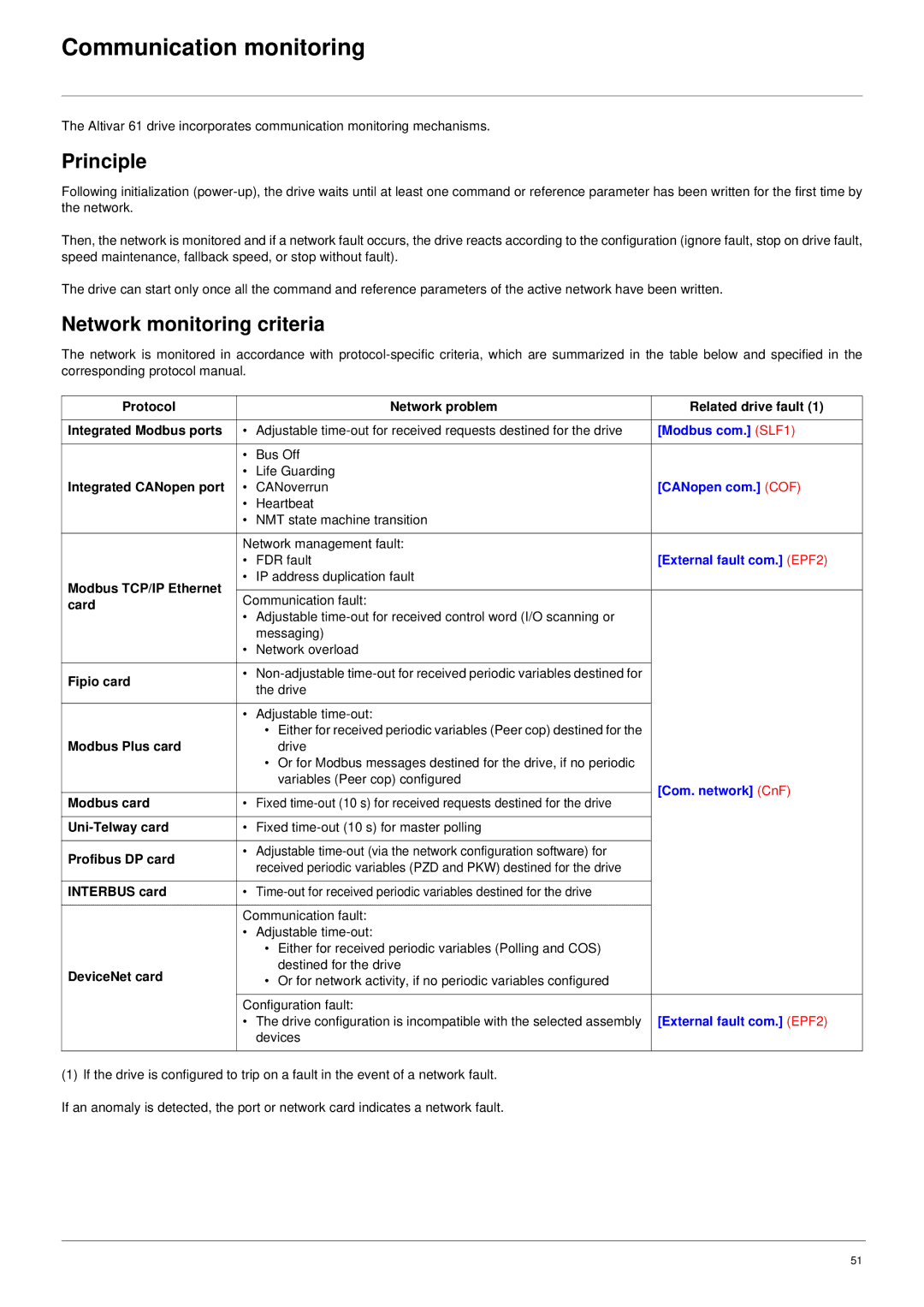
Communication monitoring
The Altivar 61 drive incorporates communication monitoring mechanisms.
Principle
Following initialization
Then, the network is monitored and if a network fault occurs, the drive reacts according to the configuration (ignore fault, stop on drive fault, speed maintenance, fallback speed, or stop without fault).
The drive can start only once all the command and reference parameters of the active network have been written.
Network monitoring criteria
The network is monitored in accordance with
Protocol |
| Network problem | Related drive fault (1) | |
|
|
|
| |
Integrated Modbus ports | • | Adjustable | [Modbus com.] (SLF1) | |
|
|
|
| |
| • | Bus Off |
| |
| • | Life Guarding |
| |
Integrated CANopen port | • | CANoverrun | [CANopen com.] (COF) | |
| • | Heartbeat |
| |
| • | NMT state machine transition |
| |
|
|
| ||
| Network management fault: |
| ||
| • | FDR fault | [External fault com.] (EPF2) | |
Modbus TCP/IP Ethernet | • IP address duplication fault |
| ||
|
|
| ||
Communication fault: |
| |||
card |
| |||
| • Adjustable |
| ||
|
| messaging) |
| |
| • | Network overload |
| |
|
|
| ||
Fipio card | • |
| ||
| the drive |
| ||
|
|
| ||
|
|
| ||
| • Adjustable |
| ||
|
| • Either for received periodic variables (Peer cop) destined for the |
| |
Modbus Plus card |
| drive |
| |
|
| • Or for Modbus messages destined for the drive, if no periodic |
| |
|
| variables (Peer cop) configured | [Com. network] (CnF) | |
|
|
| ||
Modbus card | • | Fixed | ||
| ||||
|
|
|
| |
• | Fixed |
| ||
|
|
| ||
Profibus DP card | • Adjustable |
| ||
| received periodic variables (PZD and PKW) destined for the drive |
| ||
|
|
| ||
|
|
|
| |
INTERBUS card | • |
| ||
|
|
| ||
| Communication fault: |
| ||
| • Adjustable |
| ||
|
| • Either for received periodic variables (Polling and COS) |
| |
DeviceNet card |
| destined for the drive |
| |
| • Or for network activity, if no periodic variables configured |
| ||
|
|
| ||
| Configuration fault: |
| ||
| • | The drive configuration is incompatible with the selected assembly | [External fault com.] (EPF2) | |
|
| devices |
| |
|
|
|
| |
(1)If the drive is configured to trip on a fault in the event of a network fault. If an anomaly is detected, the port or network card indicates a network fault.
51
